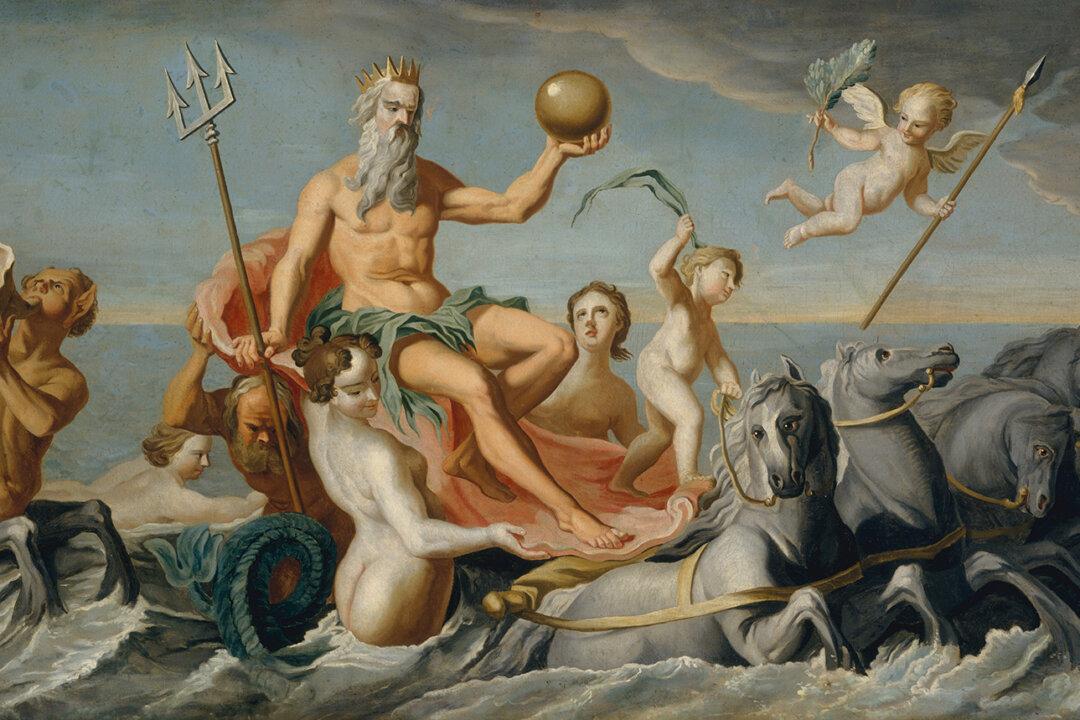Are there parallels between Paul Bunyan and Poseidon?
First, and most importantly, they both sport impressive beard growth. They are both normally depicted with chiseled physiques. Both have blue animals associated with them (an ox and a dolphin, respectively). Both carry sharp implements (axe, trident). And both, of course, come striding to us out of the mists of mythology.






